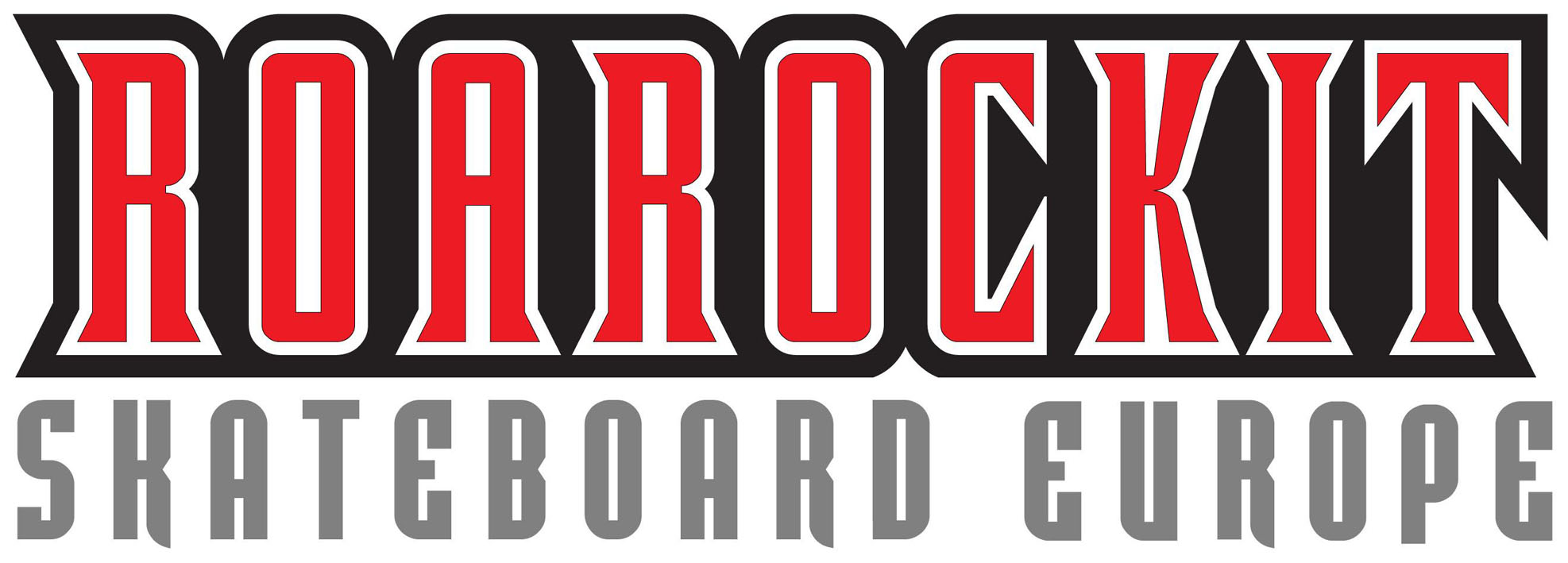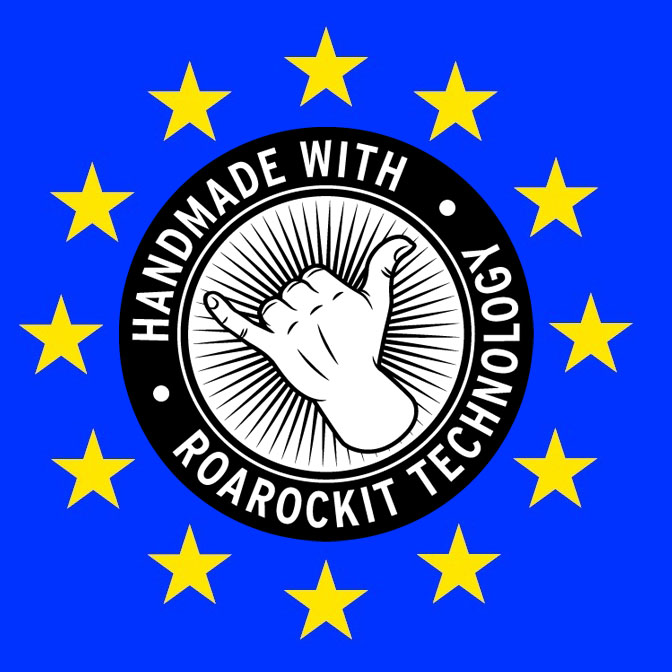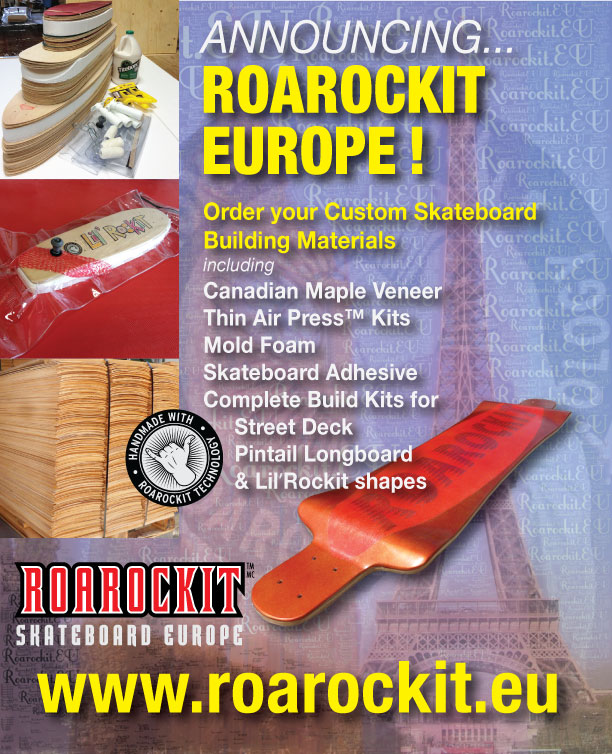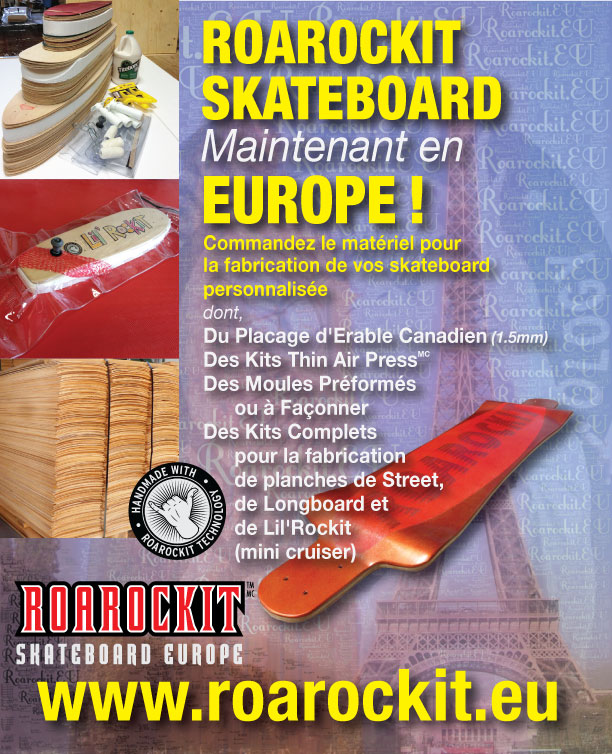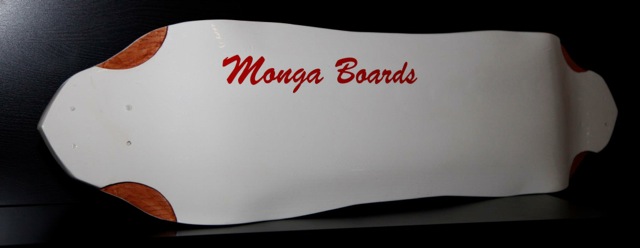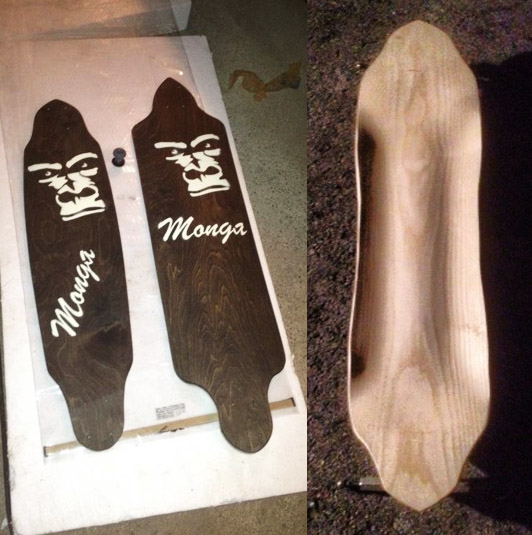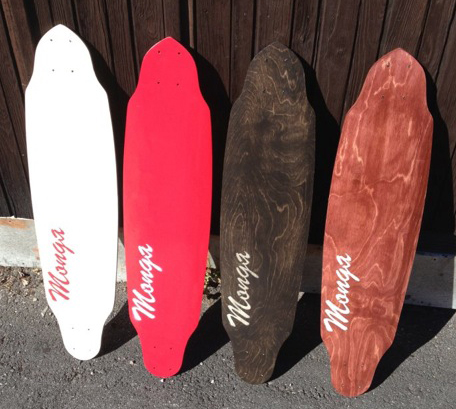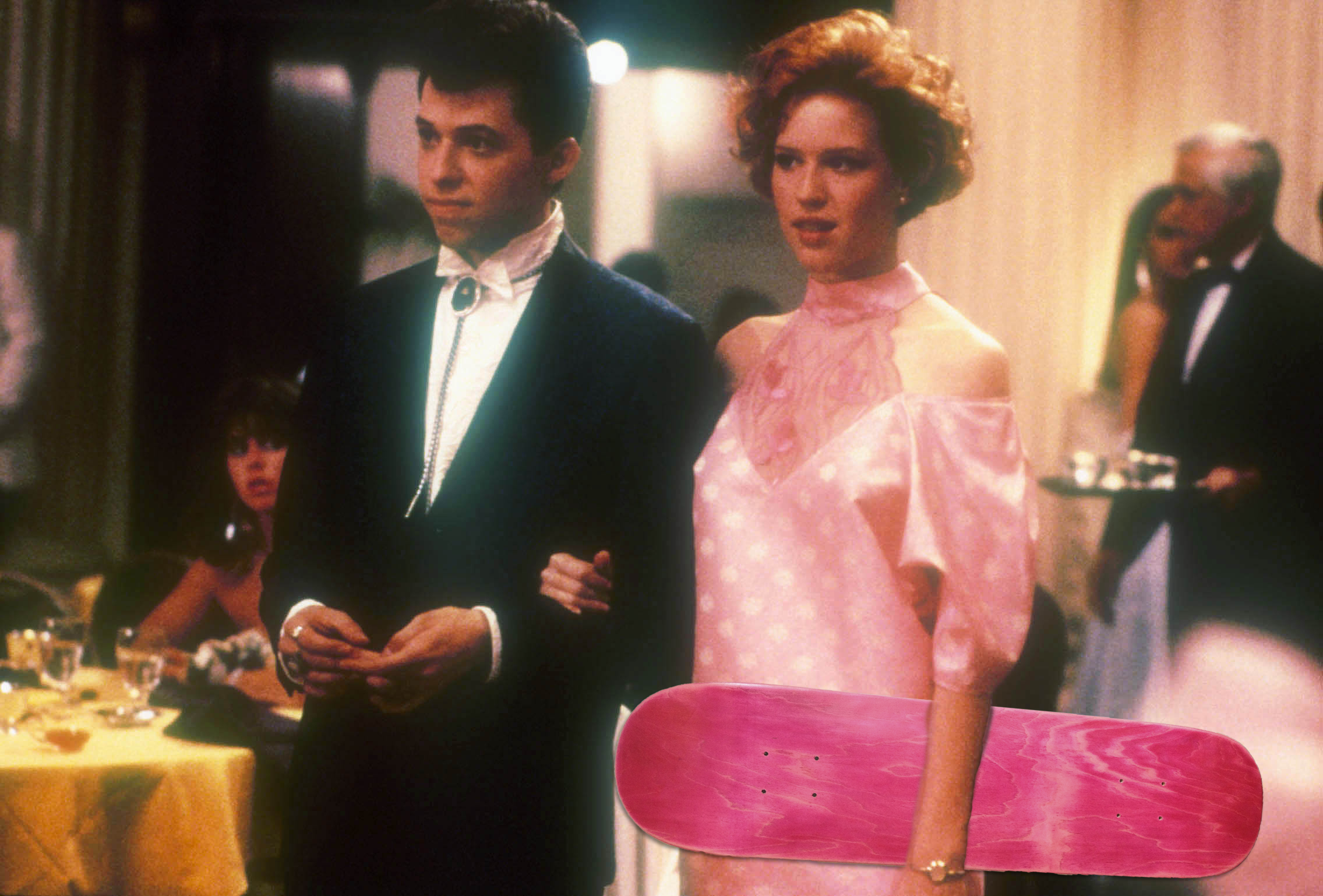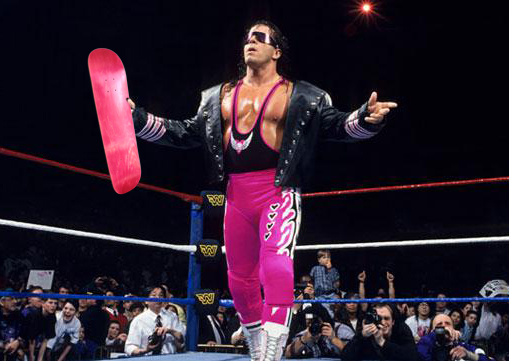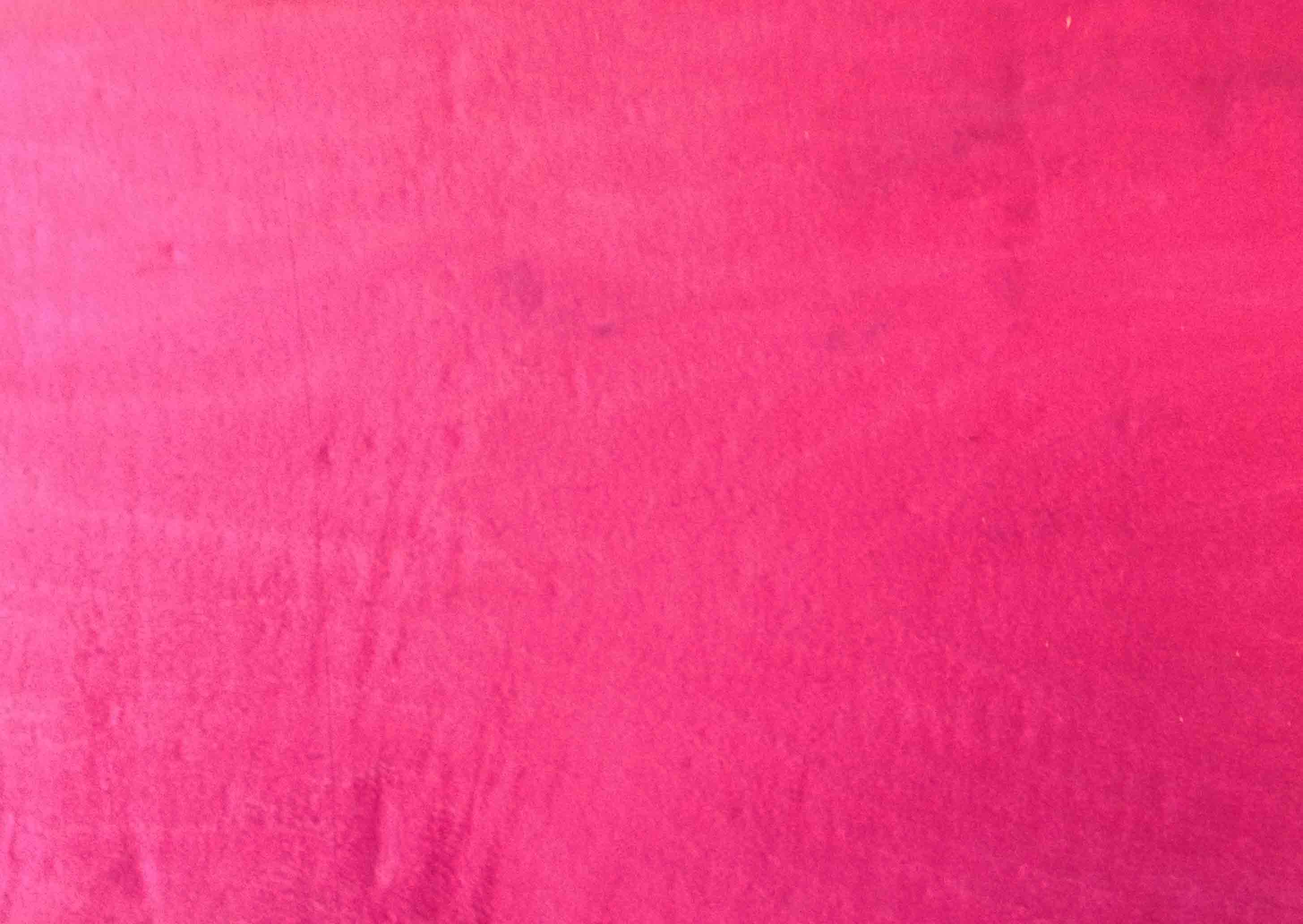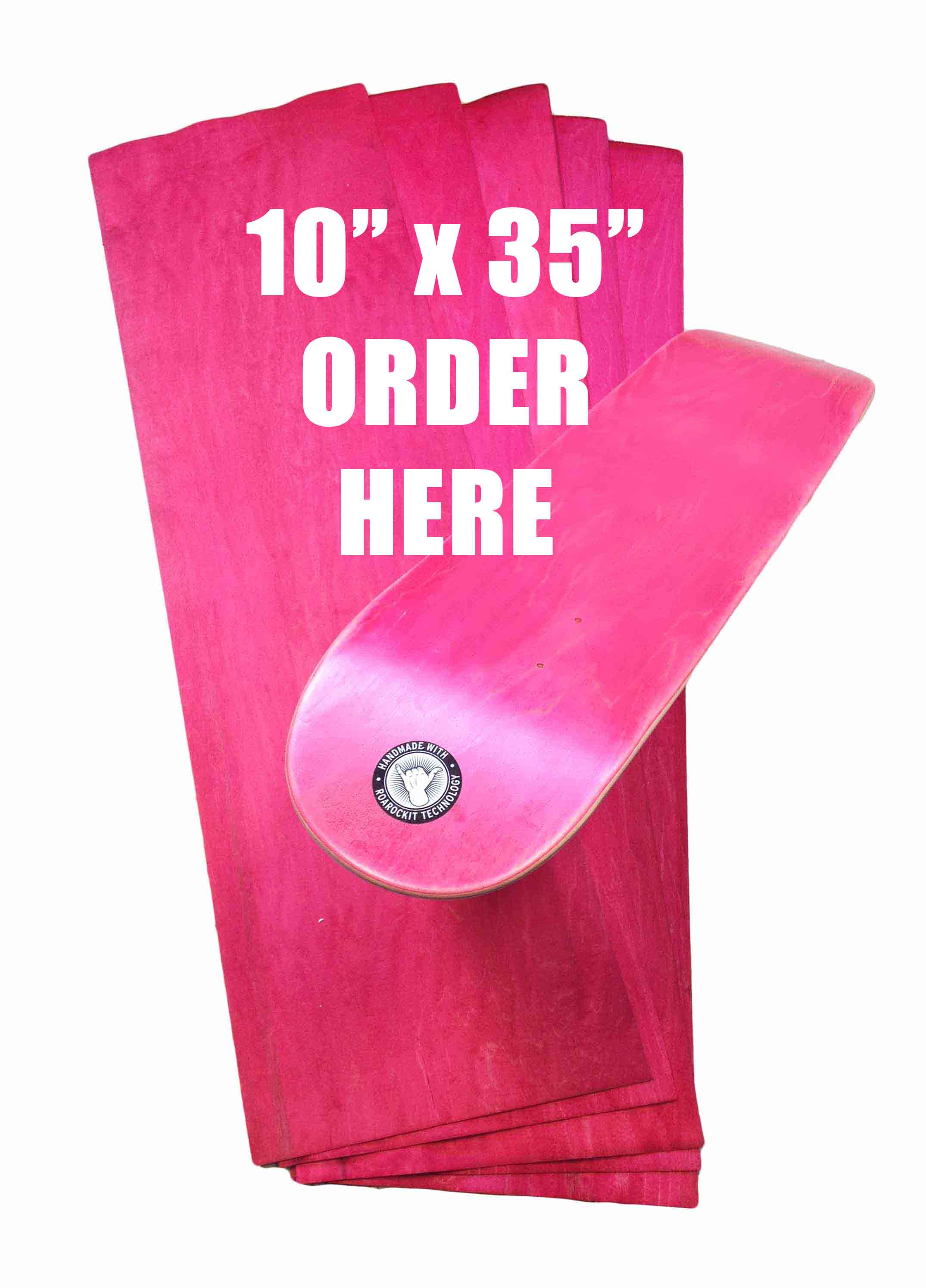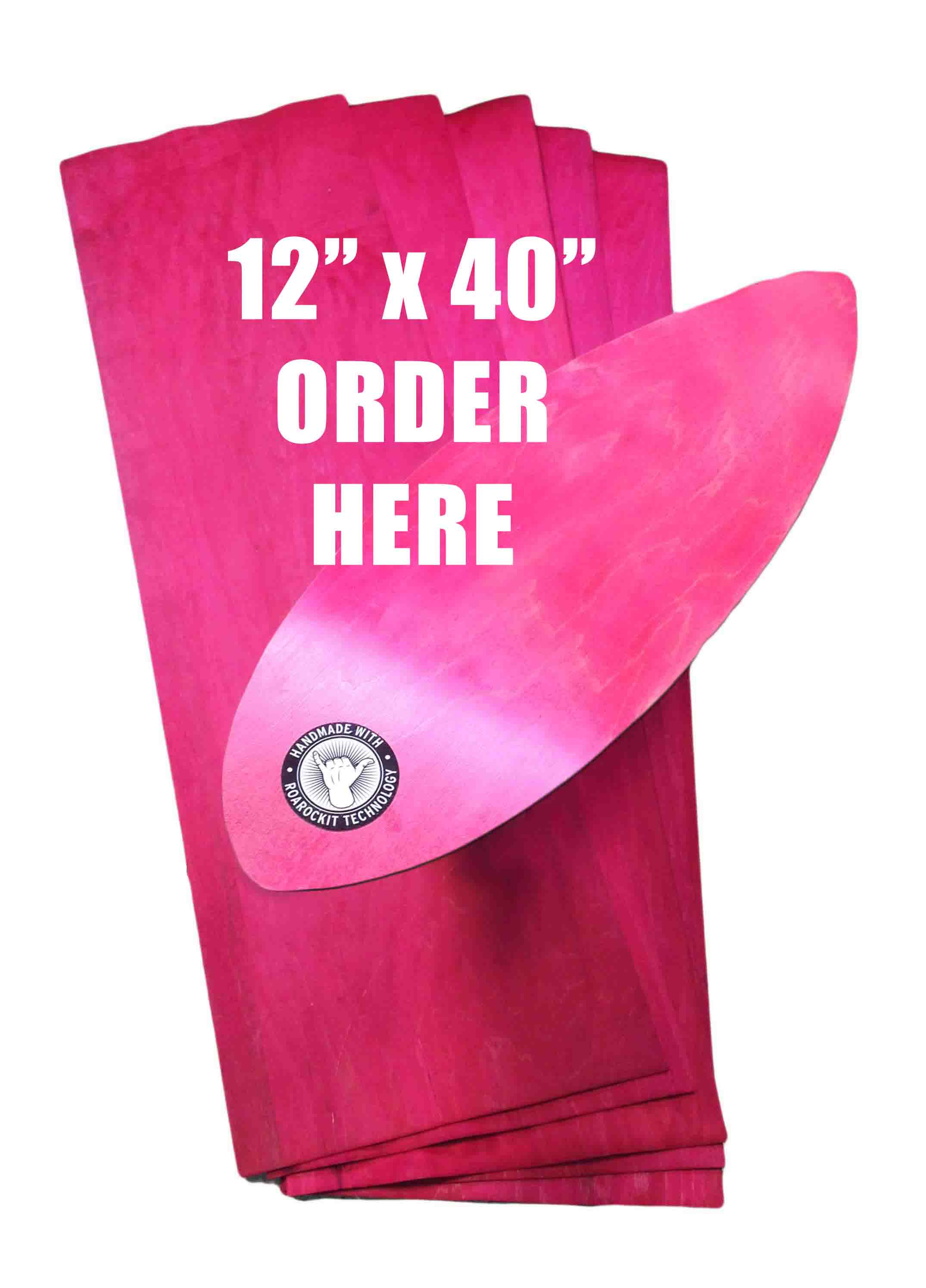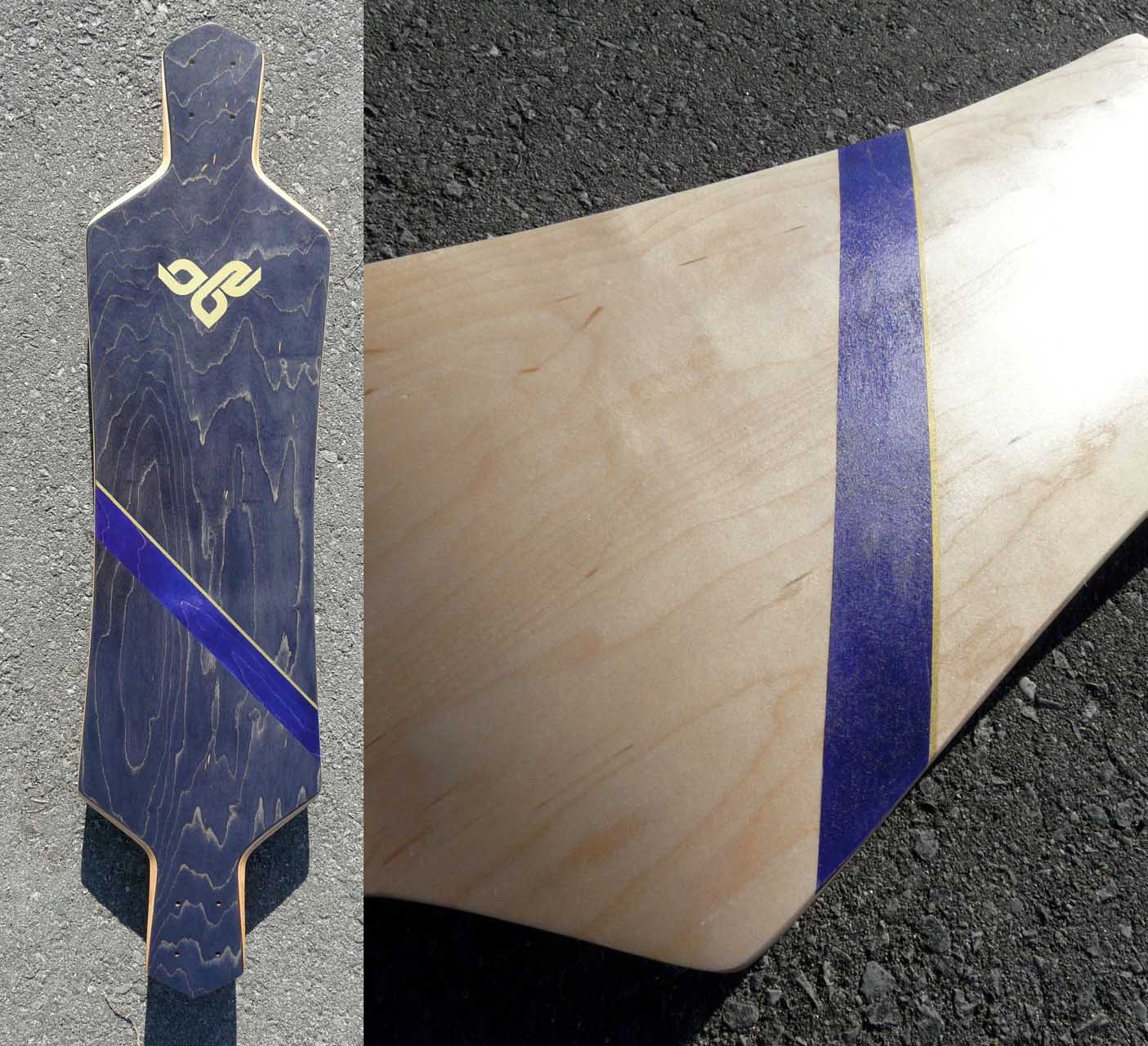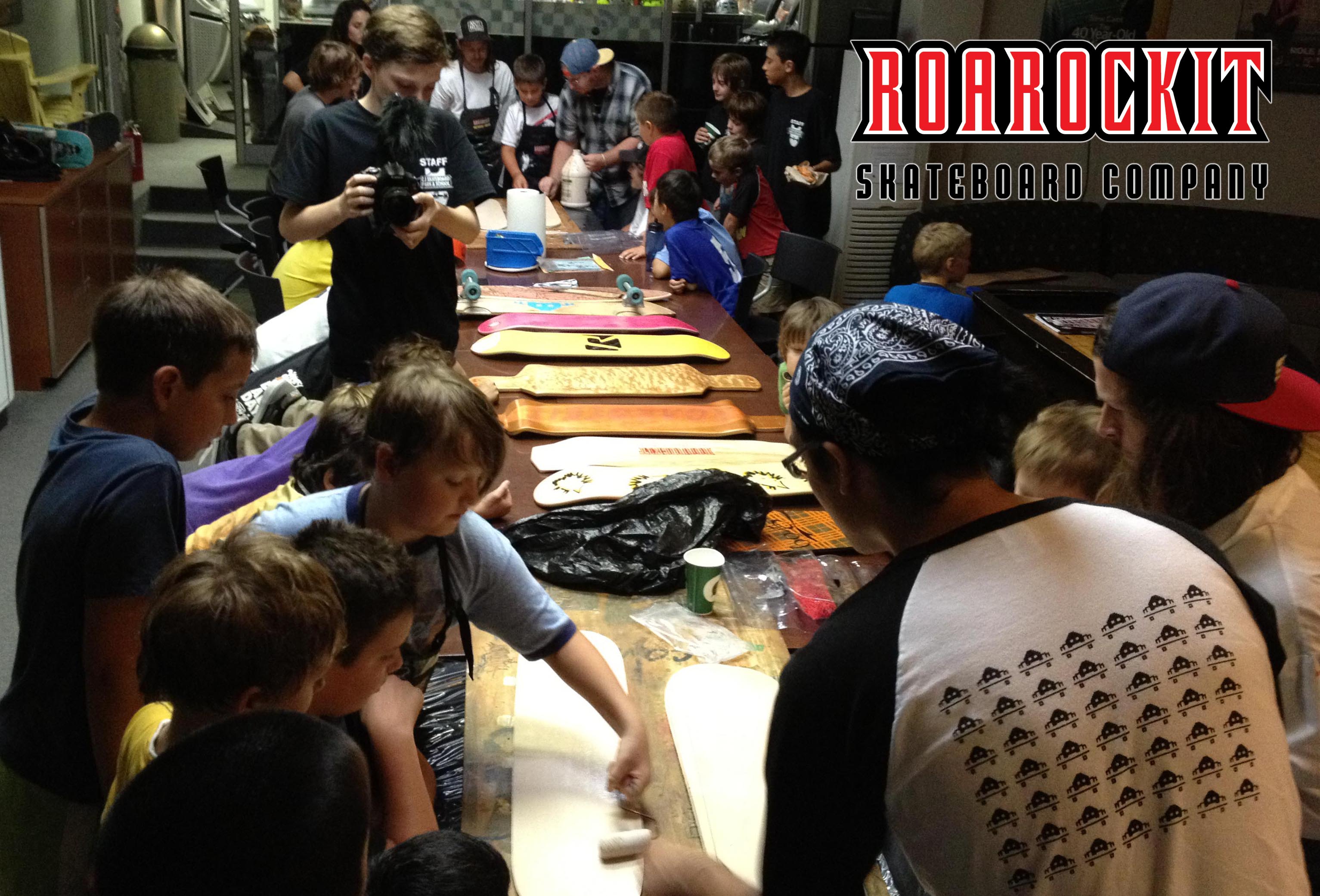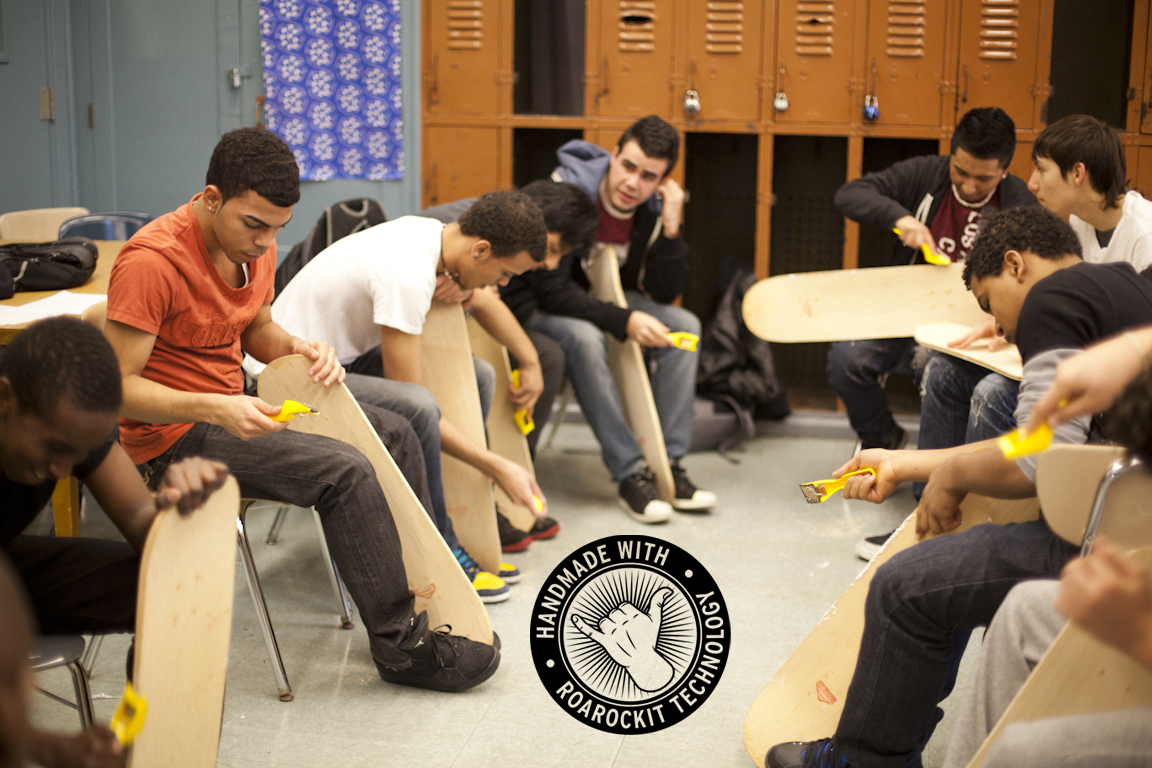BAMBOO
Since introducing our 1/16” Solid Birch veneers just over a year ago, builders have been having great success experimenting with different combinations of Birch and Maple layers. The ability to fine-tune the feel and ride of a board by using different materials in the decks construction, is something that board builders are always looking for.
That being said, Roarockit has been working to source another high quality material to offer along with our 1/16” Maple and Birch veneers. We are excited to announce, that we will now be offering a very special 1/16” Bamboo material.
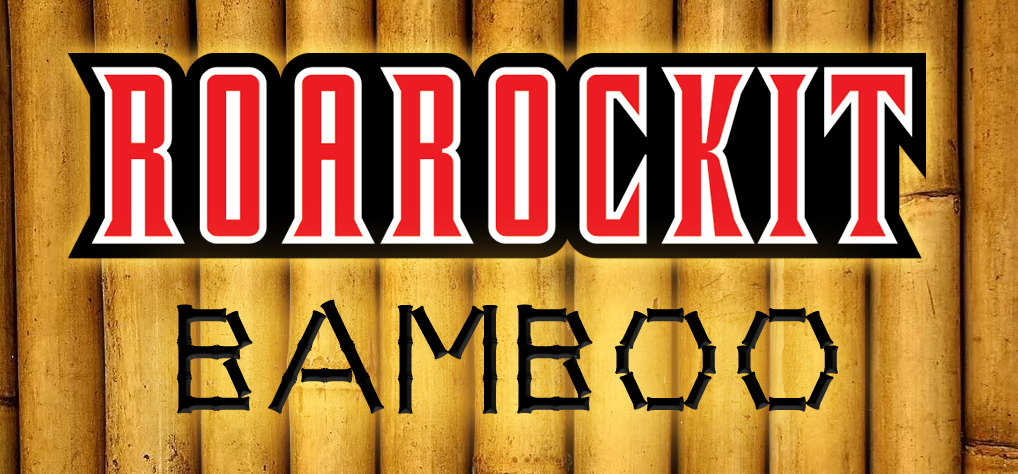
So let's get to it!
Why Bamboo?
Bamboo is used in the construction of many different styles, shapes and sizes of board. It is often used for its flexible properties, but it also has a look to it that is very unique and can be used simply as a decorative face (exterior) sheet on a deck. Bamboo is regarded as a 'green' building material because it is one of the most versatile and fastest growing plants in the world.
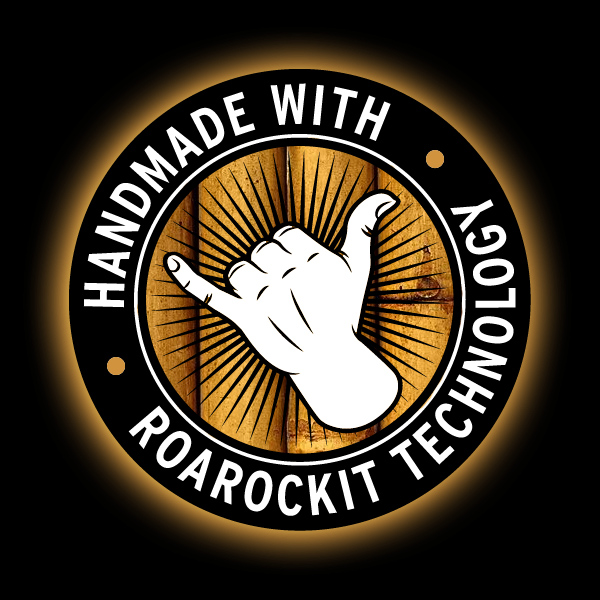
Why our Bamboo?
We looked at a bunch of different options for the type of Bamboo we thought builders would enjoy working with most. With samples in hand, and feedback by some of our most trusted and experienced board builders, we were able to decide on a 1/16” non-carbonized, solid veneer product.
Most of the bamboo available from other sources is a plywood product (not unlike Baltic Birch) and even in the 1/16” thickness, is made up of multiple pre-glued layers that in our tests broke down after constant flexing. We wanted to find something that would be strong, easily bendable and adhere to most locally available, waterproof glues.
There was also the option of getting carbonized or non-carbonized (natural) bamboo. We chose to go with the natural bamboo for a variety of reasons, the most important being that it is a stronger, denser material. Carbonized bamboo products are used mainly for aesthetic reasons, and for board building we thought that strength of the material was more important.
Here's some great insight as to the pros and cons of carbonized vs natural bamboo from doityourself.com. The article's focus is on bamboo as a flooring product, but the same rules apply.
Bamboo Properties
- Flexible
- Strong
- Stable (no warping)
- 1/16” thick (veneer, not plywood)
- Non-carbonized (lighter shade and stronger material) *carbon process softens material and is more expensive
- Works well with Titebond III adhesive and Epoxy
- Presses easily in the Thin Air Press Vacuum Bag
Material Dimensions
- 10.5” x 46” x 1/16”
How to Purchase?
We have tested multiple different ways of packaging and protecting the bamboo veneer for shipping. Due to the somewhat fragile nature of the product (it has a tendency to split along the lengthwise gluelines) we have found that it is best packaged in a minimum group of 10 sheets. We are also going to offer single sheets of bamboo, but it is only meant to be ordered along with other larger veneer packs so that we can bundle them all together in the same box to increase stiffness.
Here are the three options we have prepared for ordering from our website:
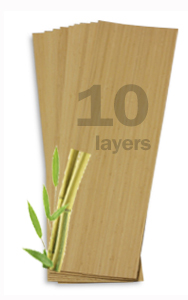 10 Pack Bamboo
10 Pack Bamboo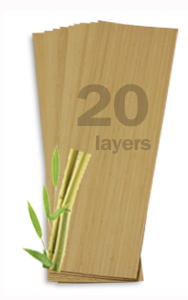 20 Pack Bamboo
20 Pack Bamboo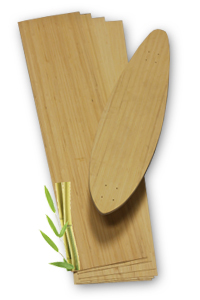 Single Sheet
Single Sheet
Also, for a limited time we are going to offer a special Pro-Builder Kit that will include (4) FREE sheets of Bamboo along with the (18) sheets of Maple veneer in the bundle. The Pro-Builder Kit also comes with a 2" thick sheet of our high density foam, and a 20x70 TAP Kit for laminating your decks!
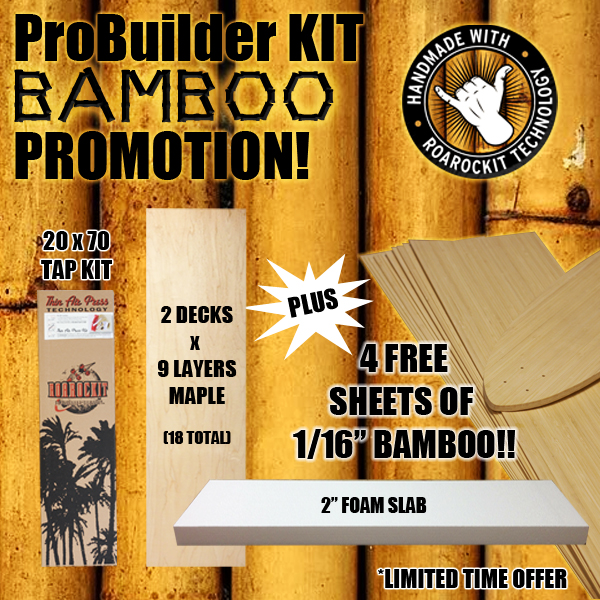 Click for ProBuilder Kit with FREE Bamboo!!
Click for ProBuilder Kit with FREE Bamboo!!
The team at Roarockit is very excited to see what builders are able to do with this new veneer layer option. We have been playing around with different combinations of Bamboo, Maple and Birch, and plan to post some of the boards and experiences in the near future :)
 Tuesday, October 29, 2013 at 11:31AM
Tuesday, October 29, 2013 at 11:31AM  1 Comment →
1 Comment →  bamboo,
bamboo,  birch,
birch,  longboard. roarockit,
longboard. roarockit,  maple,
maple,  skateboard veneer
skateboard veneer 
